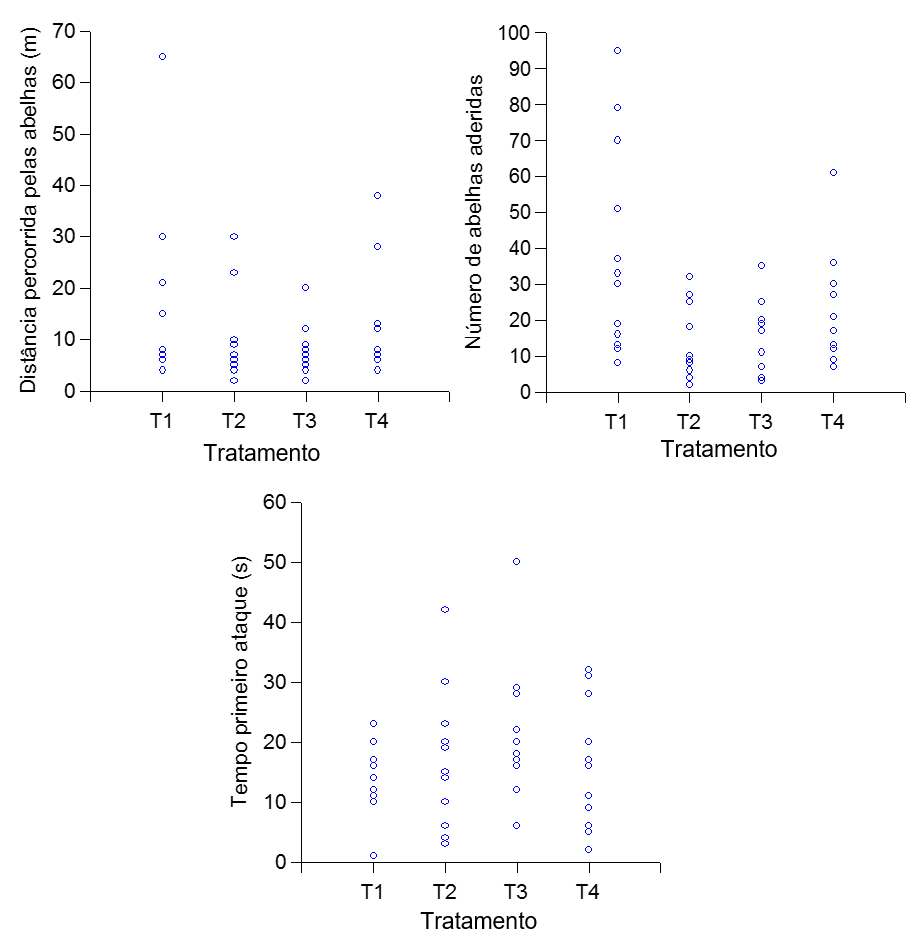The use of smoke in the control of the defensive behavior of tiuba bees
DOI:
https://doi.org/10.21708/avb.2020.14.2.8907Abstract
The aim of the study was to evaluate the effect of smoke from different plant products on the defensive behavior of tiuba bees (Melipona compressipes fasciculata Smith, 1854). The experiment was carried out in a meliponary with 12 colonies with equity regarding the biological development. The following treatments were applied to the colonies weekly: smokeless, sawdust (100% of the smoker), eucalyptus (50%) + sawdust (50%) and sawdust with 2 suber fragments, the dry bark of Amburana cearensis (Allemão) A.C.Sm.. Regarding the development of the colonies, it was observed that the use of smoke did not change the number of brood cells nor the number of pollen and honey storage cells in the colonies. Regarding the number of bees adhering to gloves and headband, it was observed that colonies managed without smoke were more defensive compared to the other ones (p ≤ 0,05). It was concluded that the use of smoke (100% sawdust in the smoker) decreased the defensive behavior of tiuba bees, being an alternative in the meliponiculture management since it does not interfere negatively in the colonies development of the colonies.
Downloads

Downloads
Published
Issue
Section
License
Autores que publicam na Acta Veterinaria Brasilica concordam com os seguintes termos: a) Autores mantém os direitos autorais e concedem à revista o direito de primeira publicação, com o trabalho simultaneamente licenciado sob a Licença Creative Commons Attribution que permite o compartilhamento do trabalho com reconhecimento da autoria e publicação inicial nesta revista. b) Autores têm autorização para assumir contratos adicionais separadamente, para distribuição não-exclusiva da versão do trabalho publicada nesta revista (ex.: publicar em repositório institucional ou como capítulo de livro), com reconhecimento de autoria e publicação inicial nesta revista. c) Autores têm permissão e são estimulados a publicar e distribuir seu trabalho online (ex.: em repositórios institucionais ou na sua página pessoal) a qualquer ponto antes ou durante o processo editorial, já que isso pode gerar alterações produtivas, bem como aumentar o impacto e a citação do trabalho publicado (Veja O Efeito do Acesso Livre).


 Esta obra está licenciada com uma Licença
Esta obra está licenciada com uma Licença 